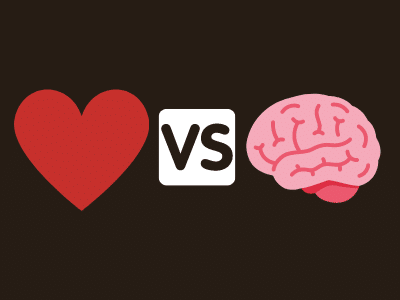How to Find Inner Peace by Silencing Your Inner Critic (Astounding!)

Hey there, amazing readers! 🖐️ Just a quick note: yes, we know there are a lot of ads here. Trust us, we get it—it’s not the prettiest look, but they help us keep this blog alive and kicking. Those pesky little ads cover the costs of all the behind-the-scenes magic, from hosting and tech stuff to creating content we hope you’ll love.
We’re committed to delivering quality posts, and your support (even just sticking around despite the ads) means everything to us. So, bear with us, and thanks for helping us keep the good vibes rolling. Now, on to the fun stuff! 😉
TRANSLATE BUTTON AT THE END OF THE ARTICLE
We all have internal conflict from an inner critic.
It is that voice in our heads that tells us that we’re not good enough, that we’re bound to fail, or that we shouldn’t even try.
For some, this is a negative voice that crops up very occasionally, and that can be silenced by reason.
But for many of us, fighting the inner critic is an exhausting daily battle that holds us back from happiness, self-esteem, and leaving our comfort zone.
When we’re in this sort of headspace, it often feels like a stalemate – me vs. myself.
In this article, we’ll help you understand – and ultimately silence – your inner critic.
First, we’ll help you detect any internal conflict and make sense of what that conflict represents by explaining the five most common forms of internal conflict.
Finally, we’ll give you some of the tools you need to move past that conflict and find lasting peace.
Common Signs Of Internal Conflict

Let’s start out by developing a clearer idea of what it looks like when you have internal conflict caused by a loud inner critic.
Self-conflict can manifest in a range of different ways, but at its core, it is about a struggle between different choices.
Most commonly, you’ll be stuck between two choices, but it may be more in some cases.
Regardless, if you’re embroiled in self-conflict you will likely notice the following:
Persistent restlessness
Feeling insecure about your own judgment
Feeling powerless and paralyzed
Obsessing about the choice you need to make
There will also often be a cycle, during which you think you’ve settled on a choice and then your inner critic tries to persuade you that you’re uncertain.
So, you may experience brief periods of relief or flashes of confidence, only to have your inner critic cast doubt on your decision and return you to your original conflict.
This is an exhausting process, and it easily consumes all of your energy and attention.
This means that your personal development tends to stagnate during times of self-conflict, and this further lowers your self-esteem.
You can begin to feel stuck and deeply pessimistic about the future.
Why Do We Have Internal Conflict?

So, why do we go through these periods of internal conflict?
Essentially, this sort of internal struggle is caused by your heart and head pulling in different directions.
In other words, the emotional and intuitive part of you ( also known as the gut feeling) is facing off against the logical, fact-focused part of you.
And there’s no reliable way of figuring out which is right.
The heart tunes into information that the conscious mind can’t detect, and the head is able to apply reason in the face of emotional chaos.
In truth, both of these aspects of yourself are incredibly useful when you’re trying to make a decision, but it takes time and effort to encourage a fruitful dialogue between the heart and head.
If you’re unable to work on your self-awareness in this way, you’ll likely be unable to feel comfortable with any major life decision you make.
What Causes Inner Conflict?

Now, let’s consider the specific role of the internal critic in these inner conflicts.
When you experience conflict within yourself, your inner critic will typically be saying things that undermine your confidence and self-worth.
But why is this happening?
Firstly, it’s important to understand the origins of your inner critic.
The things it says are often drawn from negative experiences earlier in your life when you felt bad about yourself or were criticized by someone you valued.
However, your inner critic isn’t often trying to harm you.
Rather, it represents a part of your mind that is trying to protect your heart from further harm.
When it points out the possibility of failure, its aim is to stop you from repeating negative past experiences.
Unfortunately, this part of your mind doesn’t understand that this critical inner monologue actively holds you back from happiness.
5 Types Of Internal Conflict
Now that you understand the roots of inner conflict, we can move on to explore how to understand different forms.
When it comes to conflict, personality types play a significant role in where your focus will lie.
However, almost everyone will experience all of these types of conflict at some point in their lives.
Love Conflict

Love is one of the most frequent sources of internal conflict.
This is probably because we’re at our most open and vulnerable in romantic relationships, and conflict results from fears that emerge when we feel unsafe.
And our hearts and heads famously react differently when we’re dealing with our partners.
For instance, your heart might be crazy about someone, but your head might shy away from making a longer-term commitment to that person.
Alternatively, perhaps you’re in a genuinely well-balanced, fulfilling relationship that your head appreciates, but you find your heart expressing old, built-up anger at this person.
Moral Conflict

In a nutshell, we face a moral conflict at any time we have two different sorts of reactions to an ethical dilemma.
Most commonly, we’ll see the possibility for two types of a positive outcome, yet know we can only pick one of those two outcomes.
For example, being honest sometimes stands in opposition to preserving someone’s feelings.
We might know something that a friend has a right to know, and yet be aware that passing on that information will lead to happiness.
Or, we might see that we can stand to benefit hugely from a small lie, and be torn between telling the truth and lying.
Political Conflict
Political conflict occurs when you have the sense that your beliefs and values are diverging from those of your usual political party.
Alternatively, you might encounter political conflict when you don’t feel aligned with any particular party and can’t figure out whether to support or oppose a new proposed policy.
Something similar to political conflict can also arise when you feel out of step with your family’s beliefs or from your society at large.
This can be a particularly isolating form of inner conflict, especially when you are aware of major moral issues that may ride on your political affiliation.
Self-Image Conflict

We experience self-image conflict when we act differently from how we see ourselves.
For example, if you view your compassion as a cornerstone of your identity.
Yet you find that you resent those who need your support, you’ll end up feeling a sense of inner conflict about who you are.
It’s also possible to experience self-image conflict when we don’t feel at home in our own bodies.
Perhaps you struggle to be comfortable or confident at your current weight, or there’s a part of your body that you deeply dislike.
In such cases, your desire to feel good enough can diverge from how you actually feel about yourself.
Existential Conflict
Finally, existential conflict crops up when you’re pulled in different directions regarding life’s biggest questions.
So, if your heart wants to enjoy each moment as it comes but your head recognizes the value of long-term planning, you can experience a kind of existential conflict.
To use a broader example, you might believe that people are fundamentally good, yet struggle to explain the apparent evil in the world.
Meanwhile, if you wrestle with where to stand on spiritual questions like whether there is life after death, this is also a kind of deep existential conflict.
How To Resolve Inner Conflict And Find Inner Peace

Now, let’s look at how you can push through inner conflict in order to work on finding inner peace.
All of life’s struggles – including wars – begin with inner conflict that evolves into external conflict.
Meanwhile, all of our internal conflicts and inner critics arguably come from an unhealthy attachment to beliefs, desires, and expectations.
We often acquire all of these very early in life, and many of us simply let them persist into adulthood without examination.
This means that many of our most significant feelings and choices all boil down to outdated, unhelpful beliefs.
What can we conclude from this?
That the path to lasting peace and calmness requires really examining our beliefs and making a conscious choice to reject or reaffirm them.
This process starts with reflecting and identifying the beliefs that are holding us back.
Think now about your own internal conflicts (either current or recent) and try to identify underlying beliefs that seem to play a role in these conflicts.
For example, you might pick out the childhood belief “I can’t do anything good by myself” or the adolescent belief “No one really wants me for who I am.” Construct a list of these beliefs, then prepare to challenge them.
Overcome Your Limiting Beliefs Caused By Internal Conflict

Armed with a list of your limiting beliefs, it’s now time to take active steps to move past them and reduce inner conflict.
We’ll look at two techniques – replying to your inner critic, and affirmations.
First, to reply to your inner critic, write down an opposing belief that “argues” with each limiting belief.
For example, “No one really wants me for who I am” can become “I am valuable and loveable exactly as I am.”
For the second exercise – affirmations – look at your list of belief responses and pick some that particularly resonate with you.
Then, practice saying them to yourself on a daily basis.
Look into your eyes in the mirror, and repeat your chosen affirmations 3-5 times.
If you do this often enough, your inner critic will be silenced and your limiting beliefs can become positive, affirming beliefs that support internal coherence rather than conflict.
Use Self-Hypnosis To Resolve Your Internal Conflicts
Of course, finding inner peace is a continual process, and sometimes you’ll need more help than others.
For times when you really struggle to deal with a sense of conflict or just can’t seem to shut off the voice of your inner critic, self-hypnosis can help.
By bypassing your conscious mind and accessing the subconscious beliefs that are holding you back, self-hypnosis recordings can gradually transform your thoughts and feelings.
Contrary to pop culture, hypnosis can’t make you do anything you don’t want to do.
And it’s a powerful, effective way of getting under your mind’s defenses.
Spirituality Programs You May Like:

The Enlightenment Journey is a remarkable collection of writings authored by a distinguished group of experts in the fields of spirituality, new age, and esoteric knowledge.
This anthology features a diverse assembly of well-experienced authors who bring their profound insights and credible perspectives to the forefront.
Each contributor possesses a wealth of knowledge and wisdom, making them authorities in their respective domains.
Together, they offer readers a transformative journey into the realms of spiritual growth, self-discovery, and esoteric enlightenment.
The Enlightenment Journey is a testament to the collective expertise of these luminaries, providing readers with a rich tapestry of ideas and information to illuminate their spiritual path.
Our Diverse Expertise 🌟
While our primary focus is on spirituality and esotericism, we are equally passionate about exploring a wide range of other topics and niches 🌍📚. Our experienced team is dedicated to delivering high-quality, informative content across various subjects ✨.
To ensure we provide the most accurate and valuable insights, we collaborate with trusted experts in their respective domains 🧑🏫👩🏫. This allows us to offer well-rounded perspectives and knowledge to our readers.
Our blog originally focused on spirituality and metaphysics, but we’ve since expanded to cover a wide range of niches. Don’t worry—we continue to publish a lot of articles on spirituality! Frequently visit our blog to explore our diverse content and stay tuned for more insightful reads.







